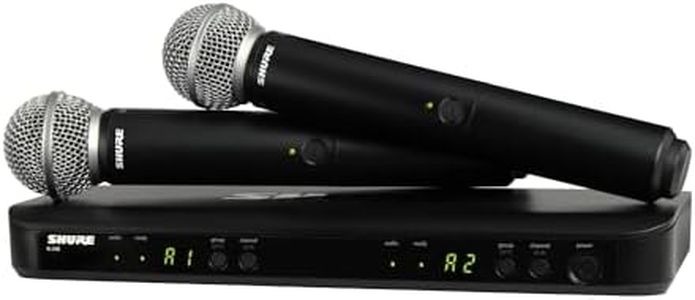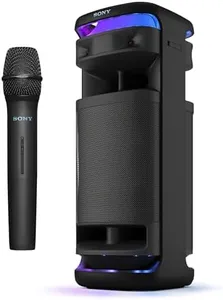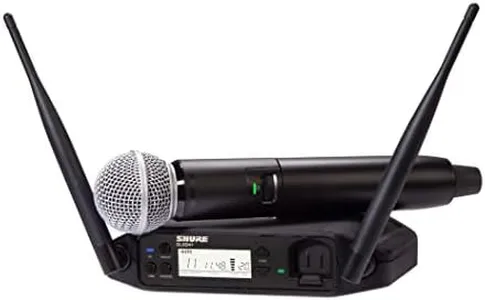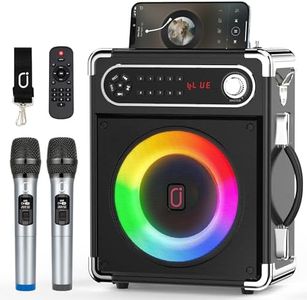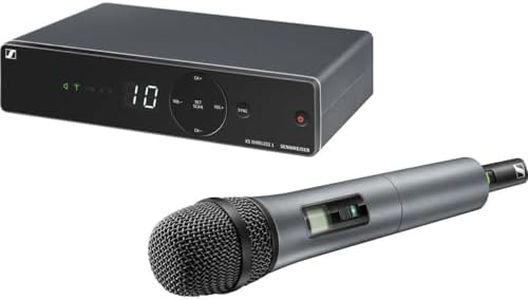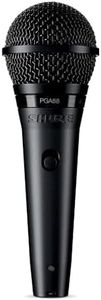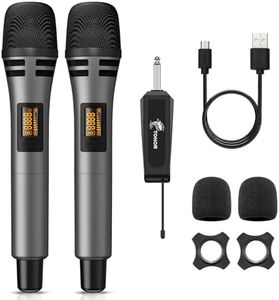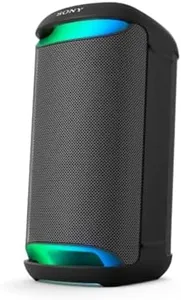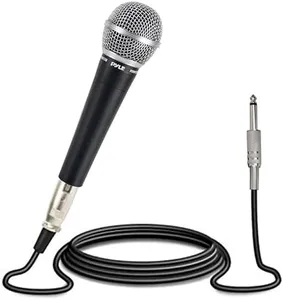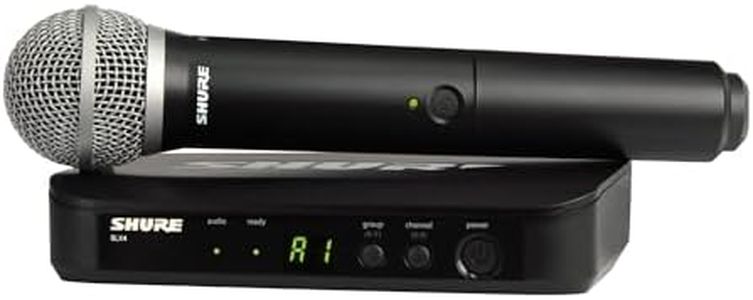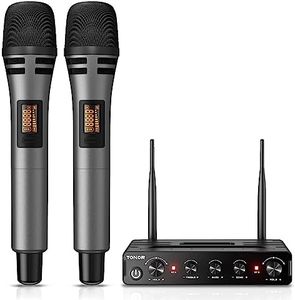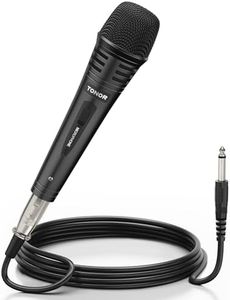We Use CookiesWe use cookies to enhance the security, performance,
functionality and for analytical and promotional activities. By continuing to browse this site you
are agreeing to our privacy policy
10 Best Karaoke Microphones
From leading brands and best sellers available on the web.By clicking on a link to a third party's website, log data is shared with that third party.
Buying Guide for the Best Karaoke Microphones
Choosing the right karaoke microphone can make your singing sessions much more enjoyable and satisfying. The best microphone for you depends on how you plan to use it, where you'll be singing, and what features matter most to you. Understanding the key specifications will help you find a microphone that matches your needs, whether you're singing at home, at parties, or even performing on stage.Microphone Type (Wired vs. Wireless)Microphones come in two main types: wired and wireless. Wired microphones connect directly to your karaoke machine or speaker with a cable, which usually means a more stable connection and no need to worry about batteries. Wireless microphones give you the freedom to move around without being restricted by a cable, but they require batteries or charging and can sometimes experience interference. If you plan to stay in one spot or don't want to deal with charging, a wired microphone is a good choice. If you like to move around or perform for an audience, a wireless microphone offers more flexibility.
ConnectivityConnectivity refers to how the microphone connects to your karaoke system or speaker. Common options include standard audio jacks (like 3.5mm or 6.35mm), USB, Bluetooth, or proprietary wireless receivers. If your karaoke setup has a specific input, make sure the microphone matches it. Bluetooth microphones are convenient for connecting to phones or tablets, while traditional jacks are more reliable for dedicated karaoke machines. Choose the connectivity that matches your equipment and how you plan to use the microphone.
Pickup Pattern (Polar Pattern)The pickup pattern describes how the microphone captures sound from different directions. The most common type for karaoke is the cardioid pattern, which picks up sound mainly from the front and reduces background noise. This is great for solo singing and noisy environments. Omnidirectional microphones pick up sound from all directions, which can be useful for group singing but may also capture more unwanted noise. If you mostly sing alone or want clearer vocals, a cardioid microphone is best. For group fun, an omnidirectional mic might be more suitable.
Built-in FeaturesSome karaoke microphones come with built-in features like echo effects, volume controls, or even speakers. Echo effects can make your voice sound fuller and more professional, while onboard volume controls let you adjust your sound without reaching for the main system. Microphones with built-in speakers are portable and easy to use, especially for casual singing. Think about which features will make your karaoke experience more enjoyable and choose a microphone that offers those.
Durability and Build QualityDurability refers to how well the microphone can withstand regular use, drops, or rough handling. Microphones made with metal bodies are generally more robust than those made of plastic. If you plan to use the microphone frequently or in party settings where it might get dropped, look for one with a sturdy build. For occasional home use, a lighter, less rugged microphone may be sufficient.
Sound QualitySound quality is about how accurately the microphone captures your voice and how clear it sounds through the speakers. Higher-quality microphones will make your singing sound more natural and less distorted. If you care about how you sound or plan to record your performances, prioritize microphones known for clear, crisp audio. For casual fun, basic sound quality may be enough.
